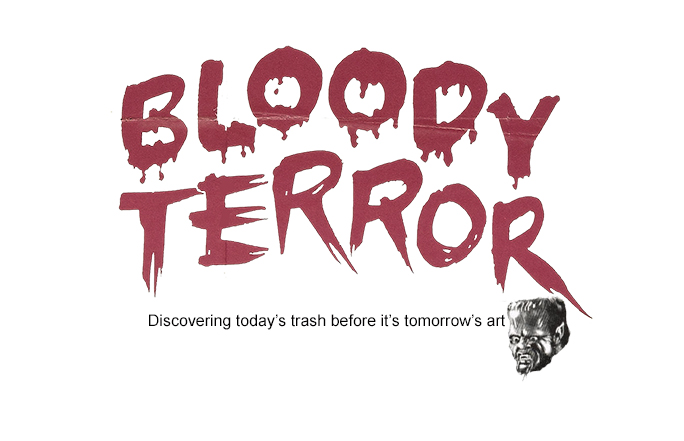I didn’t expect George Romero to die this past weekend. In
fact, he’d just announced a new movie, Road of the Dead, another zombie movie
in a long line of zombie movies, a sub-genre he’d contemporized. At least the
first two of his zombie movies – Night of the Living Dead and Dawn of the Dead
– are classics, with many horror fans adding Romero’s third zombie flick, Day
of the Dead, to that list, and with three more coming later in his career. In
between Night and Dawn, he made my favourite of all his films – Martin, an
updating of the vampire mythos that brings both the supernatural and the
psychosexual into play. My take on Martin is that it’s a movie about being
forced into becoming what someone assumes you are. In hindsight, I think this
is something that happened to Romero as a filmmaker.
When Road was announced, I joked with someone on Facebook
about the fact that Romero was making yet another zombie movie, and that
perhaps it should be called Dead Bored. It wasn't that I thought Road would be
bad, it was that I felt zombie movies were the only kind of movie for which he
could get financing. In a sense, Romero’s later zombie films, enjoyable as they
are, felt like he was “keeping his oar in” in terms of his need to keep making movies until he was able
to make a different kind of film, horror or otherwise.
By all reports, Romero was a filmmaker who wasn’t interested
in the business side of filmmaking, disliked it even. What he was interested in
was making movies. It was just this sort of attitude that brought Night of the
Living Dead into being in 1968, a movie filled with metaphors, even if they maybe came
from Romero’s subconscious. Low budget, and created by a group of enthusiastic
newcomers who just wanted to make a movie, Night became a phenomena, and
regardless of what was planned or unplanned thematically, their movie most
definitely reflected the zeitgeist of the times.
In the outpouring of public grief and appreciation within
the horror community following Romero’s death, one thought that has been
expressed over and over again is the fact that Romero pretty much influenced
anyone who has tried to make a low budget movie since 1968. I believe this
sentiment to be true. The spirit that brought Night of the Living Dead into
existence seems to propel filmmakers across the globe, and in that sense,
Romero will be with us for a long time to come. I like to think that Romero’s
1981 film Knightriders is the most autobiographical of all his work, and that
it reflects just this spirit of a small band of renegades against a modern world rapidly losing its soul.
Romero seemed a big, loveable teddy bear, and this is born
out by those who knew him. I don’t know whether or not he was aware of this,
but he was loved in the horror community. It was impossible not to think of him
as our favourite uncle. Through his movies, he gave us so much. Through his
honest appreciation of his fans, he became in a sense, one of us.
The fact of Romero’s death was a shock. The fact that it was
the result of lung cancer was not; Romero was a longtime heavy smoker. His
death, however, is a reminder of his most famous metaphor in a filmography
filled with great metaphors. Romero gave us the slow, shambling zombie. The
ones who gathered en masse and attacked. They didn’t run, unlike their new millennium
counterparts. They were simply relentless. That is what made them truly
frightening. It was their inevitability, like death itself. Romero’s zombies
may be slow, but sooner or later they WILL get you. This past weekend, the
inevitable caught up with one of my favourite filmmakers.
Goodbye, Uncle George. You will be missed. I hope the
zombies are treating their king well.
Filmography as Director:
Night of the Living Dead
There’s Always Vanilla
Season of the Witch
The Crazies
Martin
Dawn of the Dead
Knightriders
Creepshow
Day of the Dead
Monkey Shines
Two Evil Eyes (with Dario Argento)
The Dark Half
Bruiser
Land of the Dead
Diary of the Dead
Survival of the Dead




